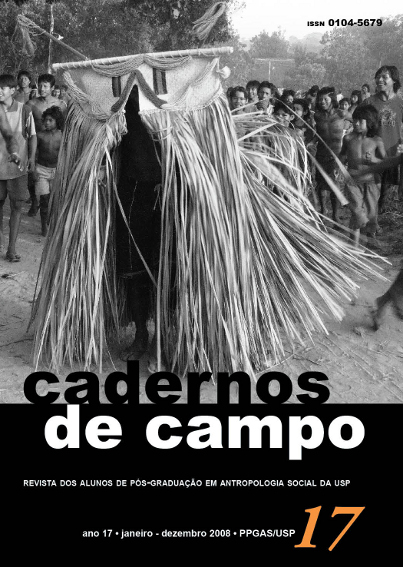Images of power: xinguano politics in ethnography
DOI:
https://doi.org/10.11606/issn.2316-9133.v17i17p89-109Keywords:
Upper Xingu. Amerindian politics. Ethnographic models.Abstract
This article reviews the ways indige-nous leadership has been described in the ethno-
graphies of the multilingual ensemble of the Upper
Xingu (MT, Brazil). The analysis points out to an
opposition between works that delineate a hierar-
chical and centralizing socius and those that focus
on what could be called centrifugal vectors of the
local political process. Even considering that the-
se different views could correspond in some way to
different ethnographic realities – as in Carib and
Arawak perspectives, for instance - the opposition
is considered here mainly as a product of different
theoretical premises. The aim of the present work is
neither to elect the “truer” description, nor to pro-
pose an alternative description of xinguano politics,
but to articulate these etnographies with the the-
oretical premises they are drawn from and, at the
same time, to stress the need of a constant revision
of the anthropological language by confronting it to
natives’ practices.
Downloads
Download data is not yet available.
Downloads
Published
2008-03-30
Issue
Section
Articles and Essays
License
I authorize Cadernos de Campo Journal of Anthropology to publish the work of my authorship/responsibility, as well as I take responsibility for the use of images, if accepted for publication.
I agree with this statement as an absolute expression of truth. On my behalf and on behalf of eventual co-authors I also take full responsibility for the material presented.
I attest to the unpublished nature of the work submitted
How to Cite
Figueiredo, M. V. (2008). Images of power: xinguano politics in ethnography. Cadernos De Campo (São Paulo, 1991), 17(17), 89-109. https://doi.org/10.11606/issn.2316-9133.v17i17p89-109





